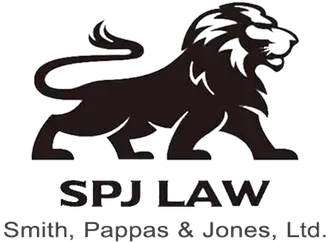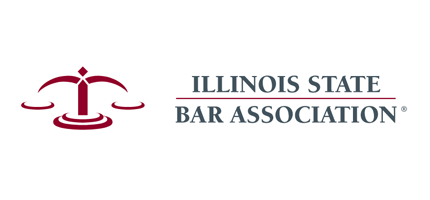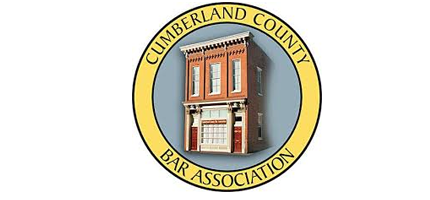Obtaining Loan Modification for a Delinquent Mortgage is Difficult
April 1, 2022
April 1, 2022
There are alternatives to loan modification for homeowners that are delinquent on their mortgage.

Some circumstances, usually a reduction in income or increase in expenses, lead homeowners to become delinquent in making their monthly mortgage payment. When the mortgage arrearage amount grows over time, the mortgage servicer may offer the homeowner the opportunity to modify their mortgage so that the arrearage can be spread over the remaining term of the note, or the term of the note can be extended to provide for reduced payments. This is a wonderful opportunity and makes good sense; however, obtaining the relief sought requires diligence and recordkeeping beyond most homeowners experiences.
A story was aired in March of 2022 by San Diego's ABC affiliate regarding a man suffering from progressive muscular atrophy on a fixed income. The man's friend and former colleague, an officer with the La Mesa Police Department, attempted to help his friend through the loan modification process, but eventually appealed to local media for help when his attempts were frustrated by the mortgage servicer. Click here to be linked to the story.
Stories like that aired by ABC are similar to those that bankruptcy attorneys hear when consulting with homeowners that are behind on their mortgage payments but want to keep their home. It’s common that homeowners do their best with the loan modification application then hope and pray that it’s processed; however, the mortgage servicer may request the applicant resolve some insignificant or non-existent error and resubmit the application. If too much time passes prior approval of the loan modification application the application will expire, and the borrowers will need to restart the process. Despite homeowners’ attempts to modify their loan, the mortgage servicer may elect to begin the foreclosure process. Homeowners can still modify their loan during the foreclosure process; however most mortgage agreements provide that the borrower is responsible for the attorneys’ fees in the foreclosure action which creates a much larger arrearage to be cured.
There is an alternative method for saving a home that is in significant mortgage arrears without engaging in the loan modification process. Chapter 13 bankruptcy puts the homeowner in control of creating a plan to cure a mortgage arrearage. To engage in this relief the borrower will consult with a local bankruptcy attorney who will put together a 3 to 5-year payment plan, which allows the homeowner to cure the arrearage over the plan period.
In addition to the benefit of implementing a plan to save borrower’s home, the homeowner will also be able to discharge most unsecured debt, including that which stems from credit cards or medical services, at the end of the payment plan while only paying back a portion of what’s owed to those creditors. This allows homeowners to cure their arrearages without the burden of monthly credit card payments or debt collection agencies demanding payment.
There are certain detriments with filing a chapter 13 bankruptcy that are not present with a loan modification. Any bankruptcy filing will remain on your credit report for ten years, which may affect future employment opportunities, or application for lines of credit. In addition to paying off the arrearage, homeowners will also need to pay their attorney and a small portion of their plan payments will be used to pay the Chapter 13 Bankruptcy Trustee.
Consult with an experienced bankruptcy attorney to help weigh the benefits and detriments of a chapter 13 bankruptcy filing. Free Consultation
Bankruptcy is a practice suitable for an experienced debt relief attorney, like those at Smith Law, Ltd. Because there are so many nuances in the application of bankruptcy law, it is inadvisable that an individual not experienced or knowledgeable about Title 11 of the U.S. Code, and how the courts have interpreted those law, to file bankruptcy without the assistance of counsel.
If you would like to speak to experienced debt relief attorneys contact Smith Law, Ltd.
We are a debt relief agency. We help people file for bankruptcy relief.
A story was aired in March of 2022 by San Diego's ABC affiliate regarding a man suffering from progressive muscular atrophy on a fixed income. The man's friend and former colleague, an officer with the La Mesa Police Department, attempted to help his friend through the loan modification process, but eventually appealed to local media for help when his attempts were frustrated by the mortgage servicer. Click here to be linked to the story.
Stories like that aired by ABC are similar to those that bankruptcy attorneys hear when consulting with homeowners that are behind on their mortgage payments but want to keep their home. It’s common that homeowners do their best with the loan modification application then hope and pray that it’s processed; however, the mortgage servicer may request the applicant resolve some insignificant or non-existent error and resubmit the application. If too much time passes prior approval of the loan modification application the application will expire, and the borrowers will need to restart the process. Despite homeowners’ attempts to modify their loan, the mortgage servicer may elect to begin the foreclosure process. Homeowners can still modify their loan during the foreclosure process; however most mortgage agreements provide that the borrower is responsible for the attorneys’ fees in the foreclosure action which creates a much larger arrearage to be cured.
There is an alternative method for saving a home that is in significant mortgage arrears without engaging in the loan modification process. Chapter 13 bankruptcy puts the homeowner in control of creating a plan to cure a mortgage arrearage. To engage in this relief the borrower will consult with a local bankruptcy attorney who will put together a 3 to 5-year payment plan, which allows the homeowner to cure the arrearage over the plan period.
In addition to the benefit of implementing a plan to save borrower’s home, the homeowner will also be able to discharge most unsecured debt, including that which stems from credit cards or medical services, at the end of the payment plan while only paying back a portion of what’s owed to those creditors. This allows homeowners to cure their arrearages without the burden of monthly credit card payments or debt collection agencies demanding payment.
There are certain detriments with filing a chapter 13 bankruptcy that are not present with a loan modification. Any bankruptcy filing will remain on your credit report for ten years, which may affect future employment opportunities, or application for lines of credit. In addition to paying off the arrearage, homeowners will also need to pay their attorney and a small portion of their plan payments will be used to pay the Chapter 13 Bankruptcy Trustee.
Consult with an experienced bankruptcy attorney to help weigh the benefits and detriments of a chapter 13 bankruptcy filing. Free Consultation
Bankruptcy is a practice suitable for an experienced debt relief attorney, like those at Smith Law, Ltd. Because there are so many nuances in the application of bankruptcy law, it is inadvisable that an individual not experienced or knowledgeable about Title 11 of the U.S. Code, and how the courts have interpreted those law, to file bankruptcy without the assistance of counsel.
If you would like to speak to experienced debt relief attorneys contact Smith Law, Ltd.
We are a debt relief agency. We help people file for bankruptcy relief.


Navigating Financial Crossroads: Retaining Your Home with a Home Equity Line of Credit or Bankruptcy
February 21, 2024
If the purpose of a HELOC is to mitigate, rather than solve an unsustainable household budget, then bankruptcy may provide a better outcome.





